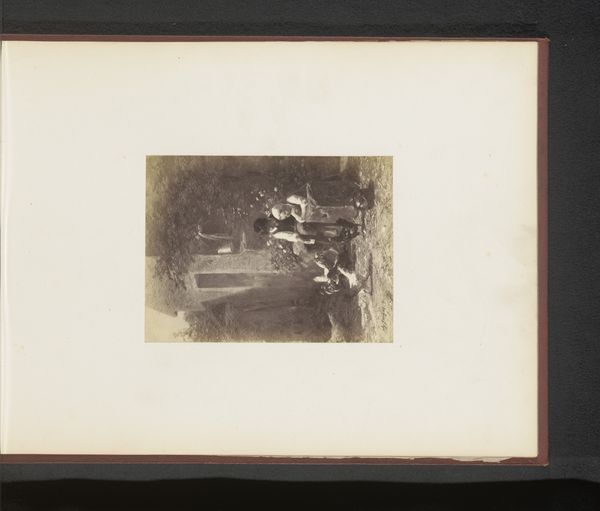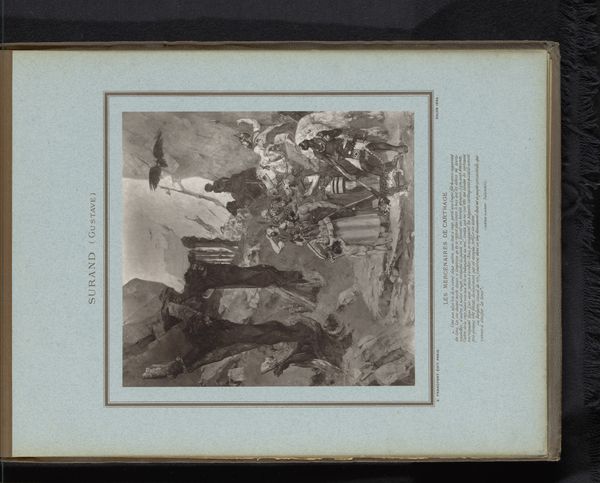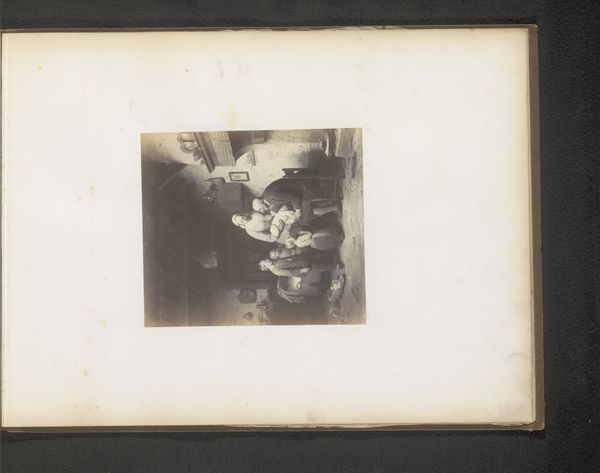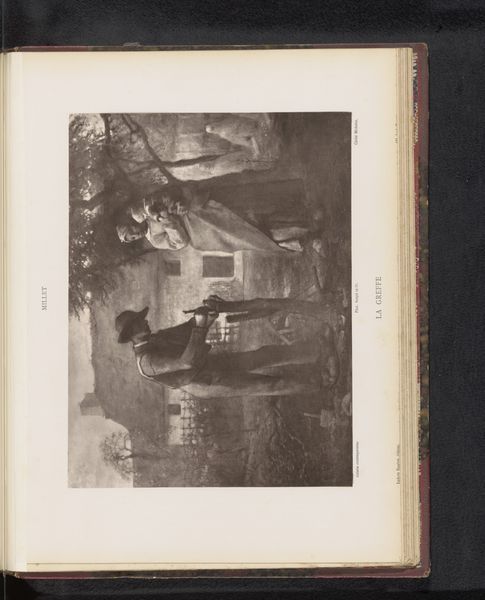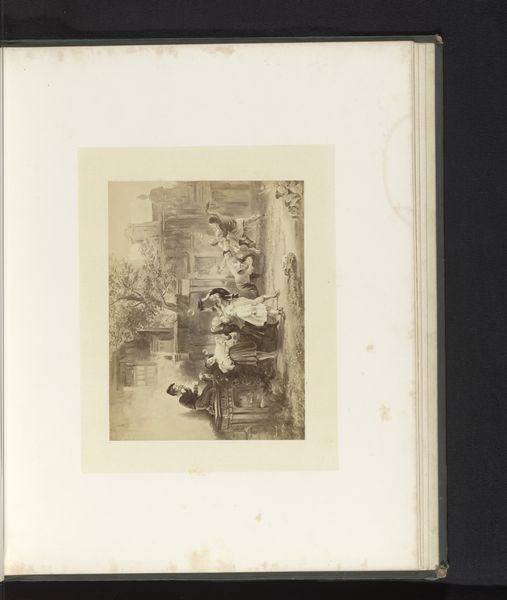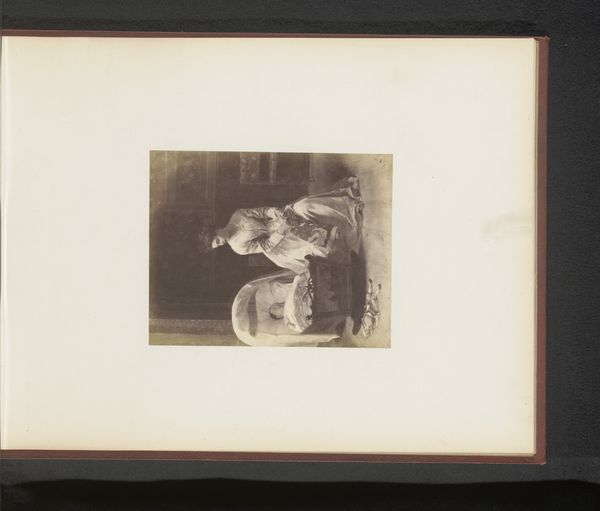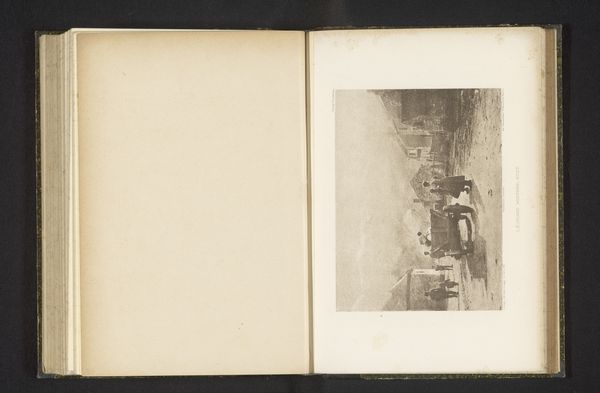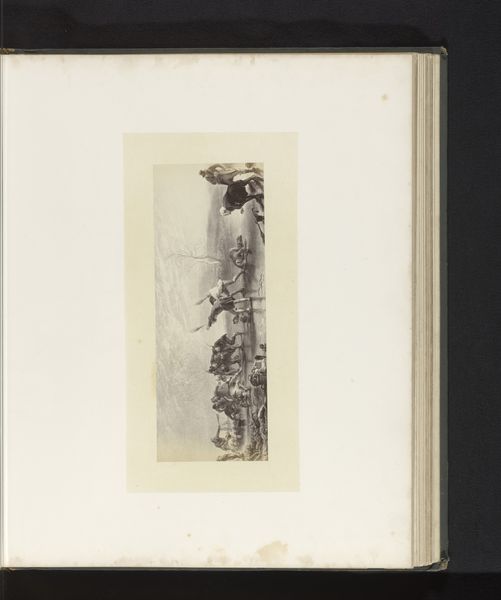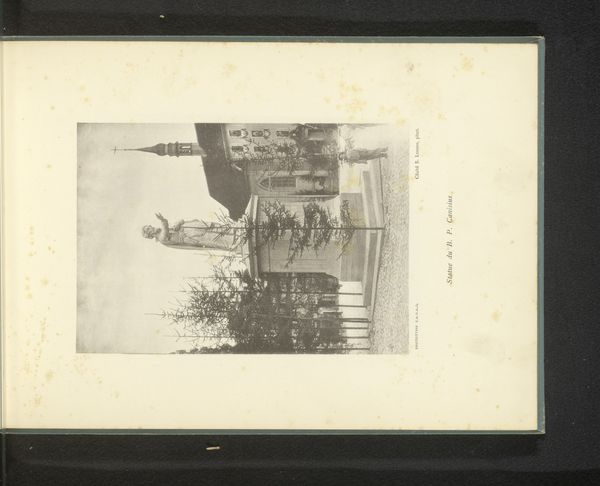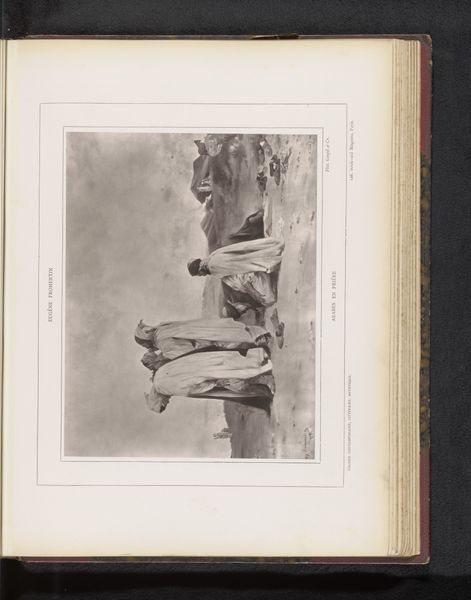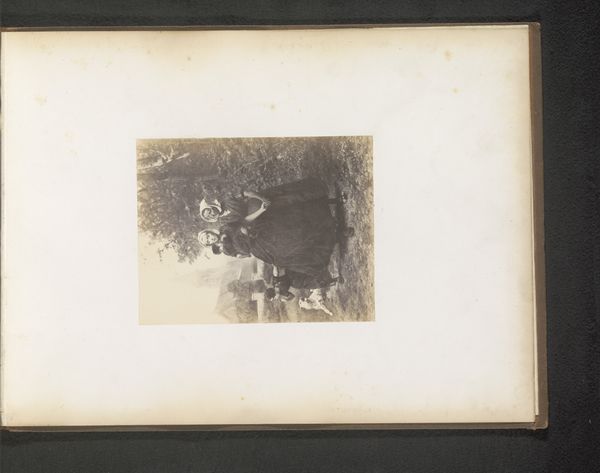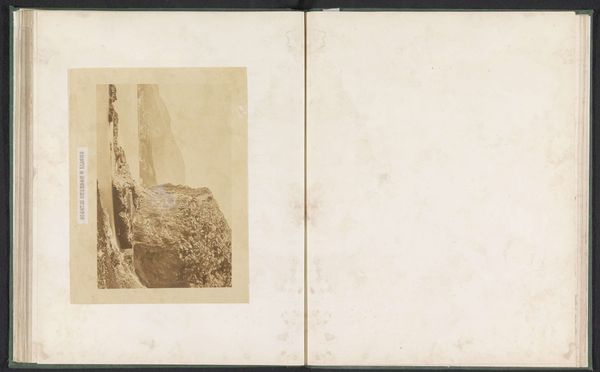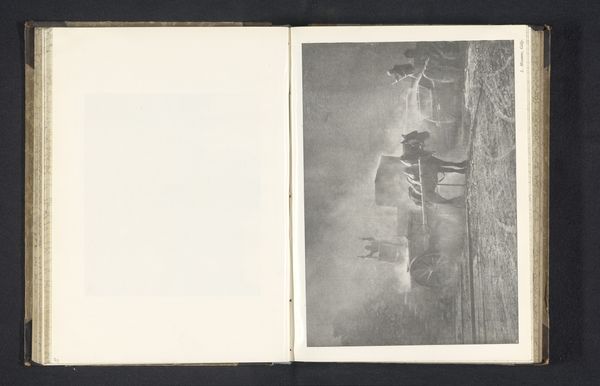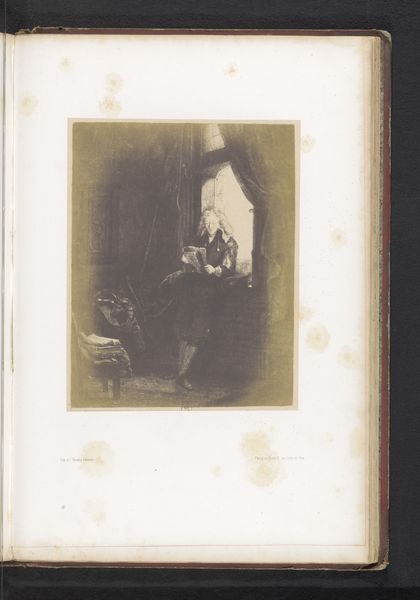
Reproductie van een schilderij van Hamlet en de doodgravers door Pascal-Adolphe-Jean Dagnan-Bouveret before 1884
0:00
0:00
print, photography
#
portrait
#
narrative-art
# print
#
photography
#
academic-art
Dimensions: height 255 mm, width 192 mm
Copyright: Rijks Museum: Open Domain
This photograph reproduces Pascal-Adolphe-Jean Dagnan-Bouveret’s painting of Hamlet and the gravediggers, and it encapsulates the nineteenth-century fascination with both Shakespearean drama and with the supposed authenticity of rural life. France in this period saw a rising interest in realism. The art institutions of the time, like the Académie des Beaux-Arts, played a huge role in shaping artistic tastes, often favoring historical or classical themes. Dagnan-Bouveret, however, sought inspiration in everyday life, particularly in the countryside. This approach allowed him to explore social themes, sometimes subtly critiquing the rapid industrialization and urbanization of France, which many saw as disruptive to traditional ways of life. By setting Hamlet among ordinary gravediggers, Dagnan-Bouveret democratizes the play, challenging the established order through the lens of art. To fully understand this image, one might research French art institutions of the 19th century and also explore the period's social anxieties around industrialization and urbanization. The meaning of art is always contingent on its social and institutional context.
Comments
No comments
Be the first to comment and join the conversation on the ultimate creative platform.
